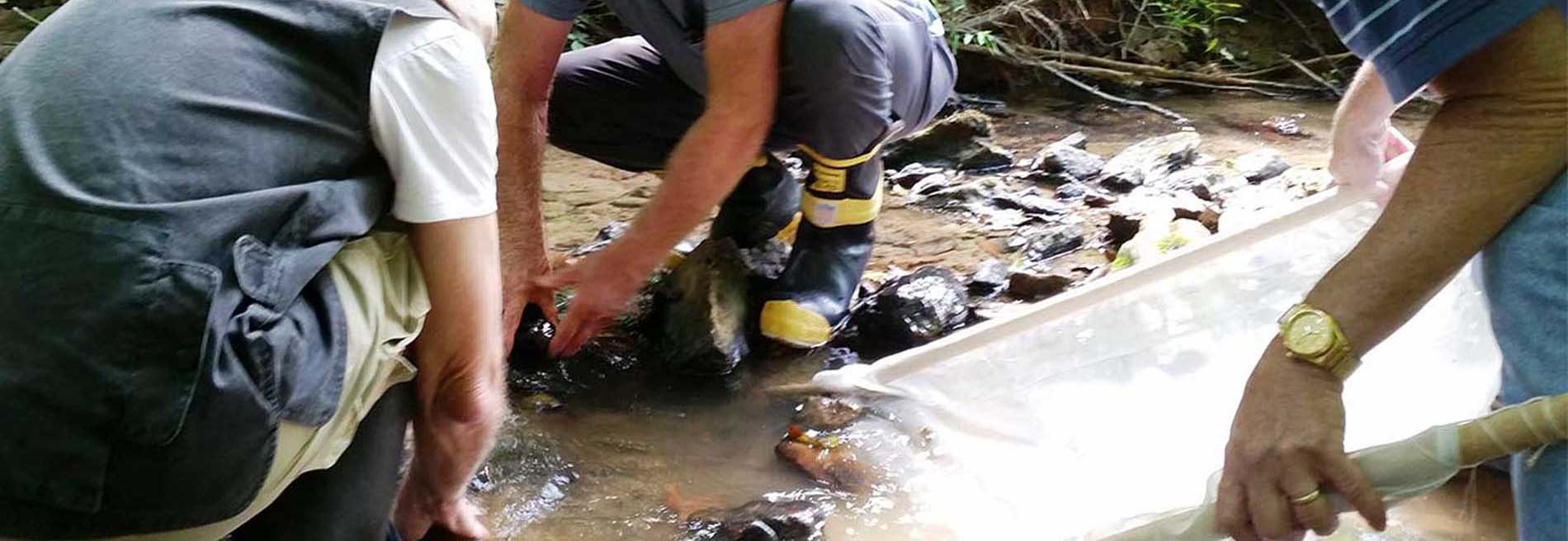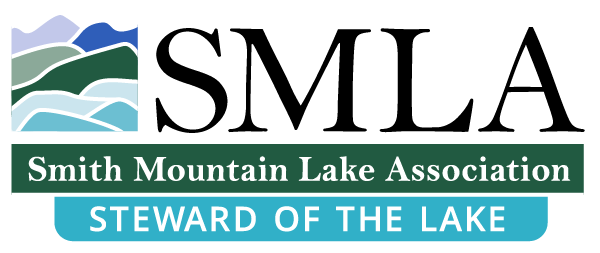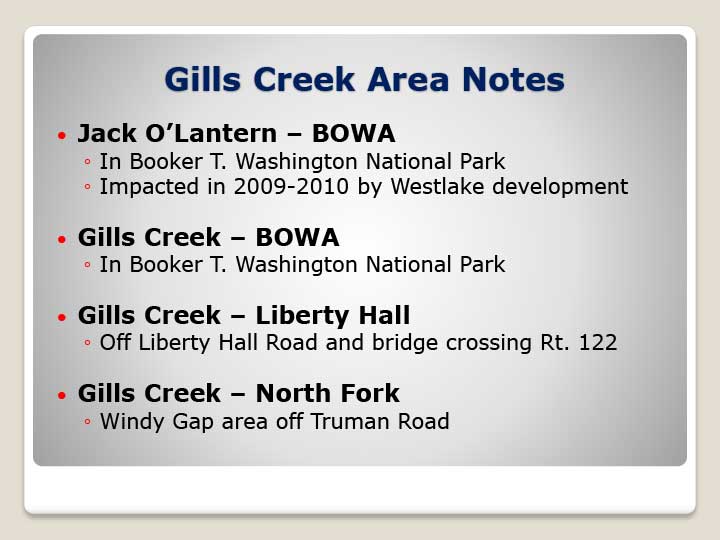
Save Our Streams
The Smith Mountain Lake Association (SMLA) teams up with two other organizations—the Virginia Save Our Streams Program and the Blue Ridge Foothills and Lakes Chapter of the Virginia Master Naturalist Program to conduct water quality monitoring on key streams flowing into the lake. Twice a year, certified volunteer monitors, also known as citizen scientists, collect and identify freshwater aquatic macroinvertebrates, the critters that live on the bottom of a stream.
The macroinvertebrates we gather may be classified as pollution-tolerant or pollution-intolerant, and the relative balance between those two categories can help us determine how healthy the water is in a given stream. The scoring scale runs from 0 to 12, with scores of 0-7 being unsatisfactory, 8 unable to determine (i.e., gray area), and 9-12 satisfactory. Since factors like weather events, temperature, and insect hatches can affect scores, we monitor each site twice a year and average the results. The results of our 2023 testing are shown in the pie chart on this page. The green slice represents the percentage of tested streams that scored in the satisfactory range; the red slice represents the percentage of tested streams that scored in the unsatisfactory range; and the grey slice represents the percentage of tested streams that scored in the grey area.
The data collected is entered into the Virginia SOS database and used by the State Department of Environmental Quality to assess the overall quality of Virginia’s streams and rivers and used to identify deficiencies that may need to be addressed. The SOS data from streams feeding into Smith Mountain Lake complements the nationally recognized SMLA/Ferrum College Water Quality Monitoring Program (WQMP).
Join us and make a difference!
Individuals interested in learning and becoming certified Save Our Streams monitors attend an Orientation session designed to provide a basis for understanding water quality and how water quality is monitored. This is followed by in-stream monitoring sessions collecting and identifying freshwater aquatic macroinvertebrates with nationally accredited trainers leading to certification.
To learn more about becoming a certified SOS monitor should contact the SOS Area Coordinator at smlstreams@gmail.com or by leaving a message with the SMLA office at (540) 719-0690.
Join SMLA Today
Click to learn more about how you can help Smith Mountain Lake and its community.



